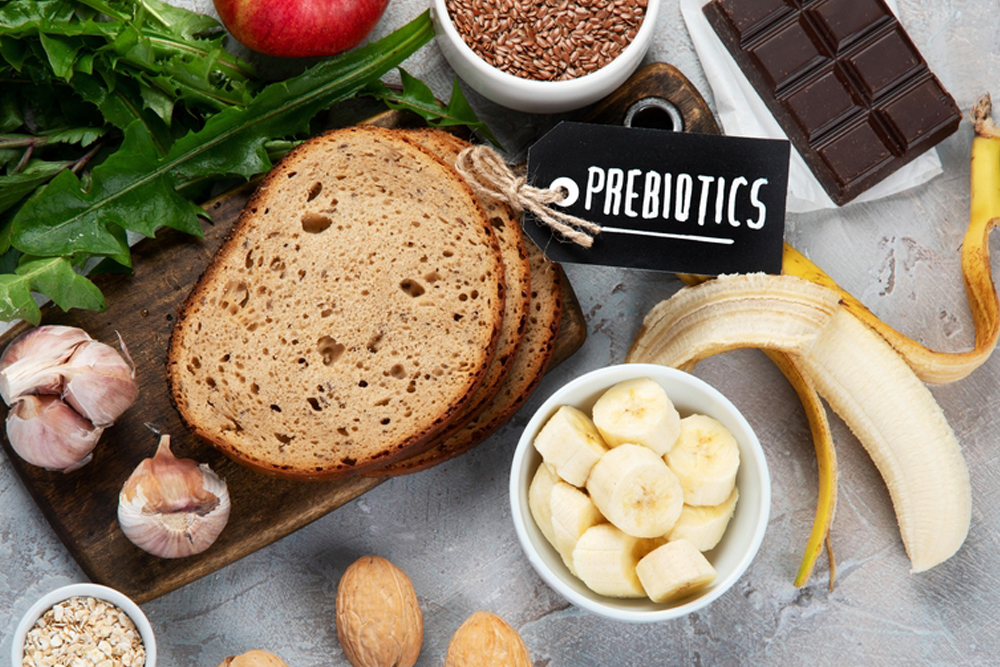In recent years, there has been growing awareness surrounding the importance of gut health and its influence on our overall well-being. Central to this understanding are two critical components – prebiotics and probiotics. These two buzzwords have been making waves in the health and wellness industry, but what exactly are they, and how do they relate to the microbiome? In this blog post, we will delve into the world of prebiotics and probiotics, exploring their roles in maintaining a healthy gut and how they support the complex ecosystem known as the microbiome.
Popular Sources of Prebiotics:
- Inulin: Found in chicory root, garlic, onions, and Jerusalem artichoke.
- Fructooligosaccharides (FOS): Present in bananas, asparagus, and leeks.
- Galactooligosaccharides (GOS): Found in legumes and certain dairy products.
Understanding the Microbiome: Before we dive into the details of prebiotics and probiotics, let’s first grasp the concept of the microbiome. The microbiome refers to the vast and diverse community of microorganisms living within our bodies, with the gut being one of its most significant habitats. This community is made up of bacteria, viruses, fungi, and other microorganisms, all working together in a delicate balance to support our digestive and immune systems, regulate metabolism, and even impact our mental health.
Prebiotics: Nourishing the Microbial Garden: Prebiotics are non-digestible fibers and compounds found in certain foods that act as a food source for beneficial bacteria residing in our gut. Think of them as fertilizers for the microbial garden within our bodies. Prebiotics are not affected by our digestive enzymes, so they make their way to the colon mostly intact, where they fuel the growth and activity of specific beneficial bacteria.
Foods rich in prebiotics include garlic, onions, bananas, apples, chicory root, asparagus, and whole grains. Consuming these prebiotic-rich foods can help foster the growth of beneficial gut bacteria, which, in turn, can have a positive impact on digestion and overall gut health.
Probiotics: The Friendly Bacteria: Probiotics, on the other hand, are live microorganisms that can be found in fermented foods like yogurt, kimchi, sauerkraut, kefir, and certain supplements. Unlike prebiotics, which serve as food for beneficial bacteria, probiotics are the actual beneficial bacteria themselves. When we consume probiotics, they introduce live bacteria into our gut, contributing to the diversity and balance of the microbiome.
Probiotics can aid in crowding out harmful bacteria, support the breakdown of complex food components, and produce essential nutrients that our bodies can absorb. Additionally, certain probiotics can bolster the gut lining, promoting a healthier barrier against unwanted substances, thus helping to alleviate digestive issues.
Synergy: How Prebiotics and Probiotics Work Together: While prebiotics and probiotics have distinct roles, they also work synergistically to promote optimal gut health. By consuming both prebiotics and probiotics, we can create an environment in which beneficial bacteria can flourish. The prebiotics serve as nourishment for the probiotics, helping them to establish and maintain a robust presence in the gut.
Together, this dynamic duo can help strengthen the gut’s defenses, enhance nutrient absorption, and alleviate common digestive problems such as bloating, gas, and constipation. Moreover, studies have suggested that a well-balanced microbiome may contribute to improved mental health and a stronger immune system.
The relationship between prebiotics, probiotics, and the microbiome is a fascinating one. By incorporating prebiotic-rich foods like garlic, onions, and bananas, along with probiotic sources like yogurt and fermented vegetables, we can support the thriving ecosystem within our gut. This harmonious balance of microorganisms can lead to better digestion, improved immune function, and even a happier mind. So, let’s take a step towards nurturing our microbiome and embracing a healthier, more holistic approach to overall well-being.

